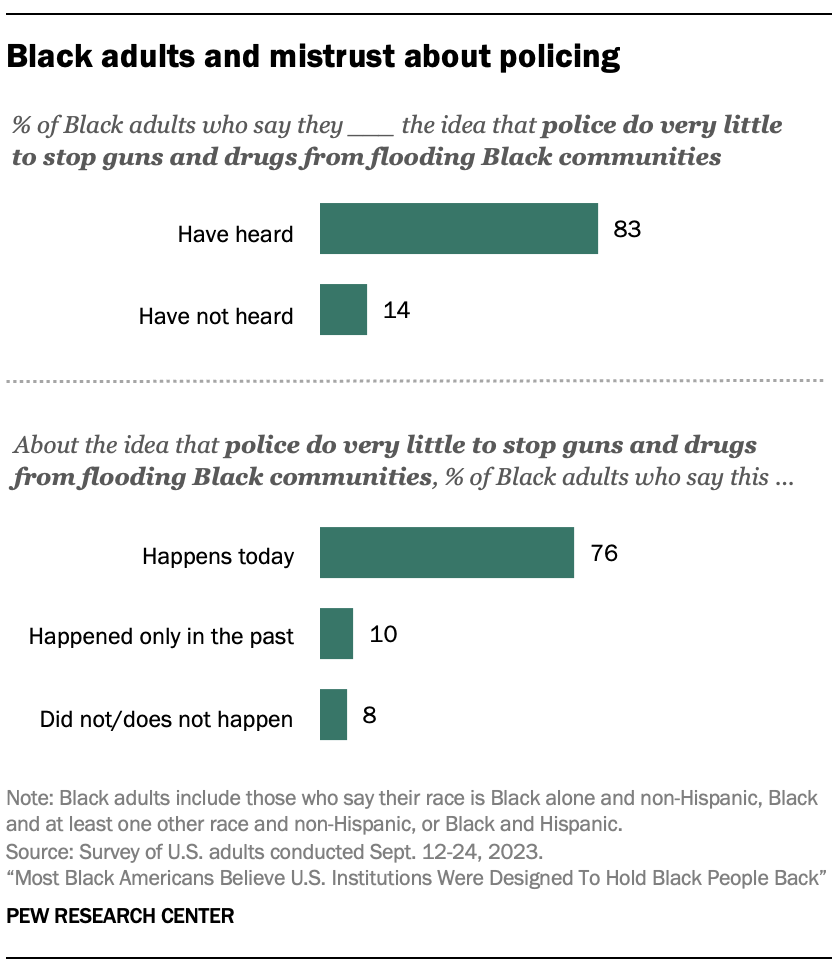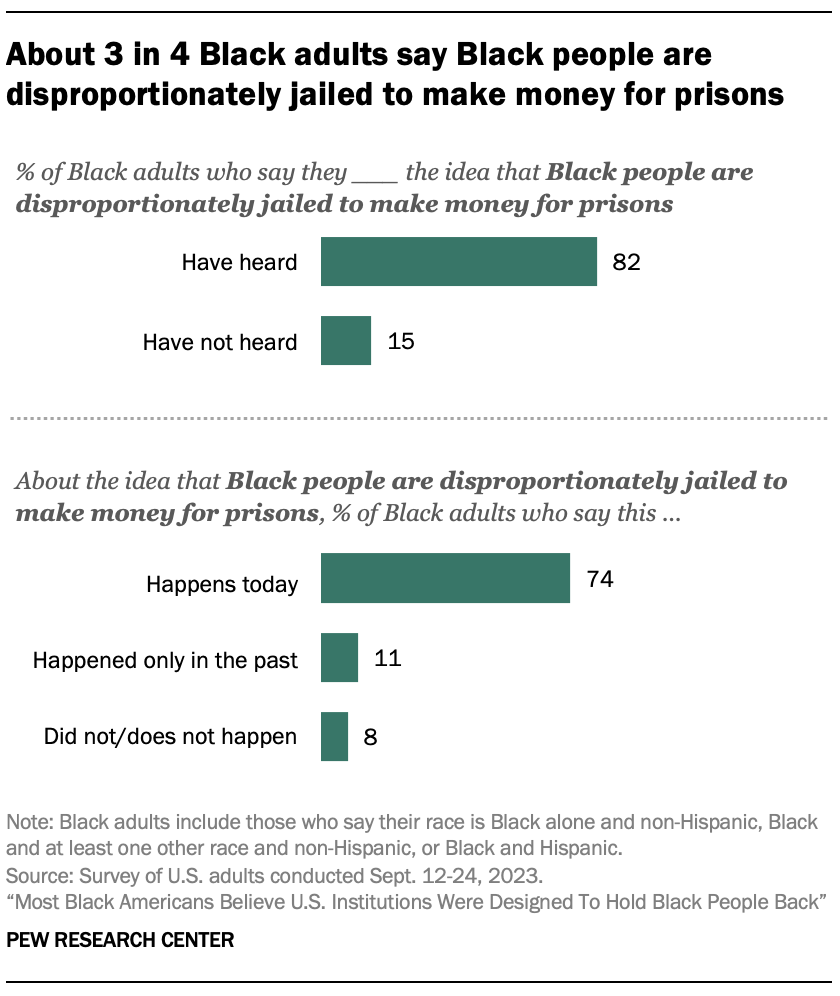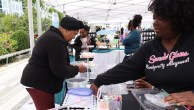Editorial note to readers
A version of this study was originally published on June 10. We previously used the term “racial conspiracy theories” as an editorial shorthand to describe a complex and mixed set of findings. By using these words, our reporting distorted rather than clarified the point of the study. Changes to this version include: an updated headline, new “explainer” paragraphs, some additional context and direct quotes from focus group participants.
Claudia Deane, Mark Hugo Lopez and Neha Sahgal contributed to the revision of this report.
Views about the intentions of the U.S. criminal justice system have their roots in key events in the 20th century.
In the convict-leasing and chain gang systems of the early 1900s, Black men were forced to build roads, bridges and ditches as part of their incarceration. This new infrastructure improved the business prospects of rural planters throughout the South.
And in the 1990s, the CIA released a report about its role in the inner-city cocaine epidemic of the 1980s and early ’90s. While the agency denied that it was directly involved, it admitted that addressing drug activity in their Central American operations was not among its priorities.
These events provide some context for Black Americans’ beliefs about the intentions of the nation’s criminal justice system.
Black Americans believe the criminal justice system was designed to hold them back

About three-quarters (74%) of Black adults say the prison system was designed to hold Black people back a great deal or a fair amount. Similar shares say the same about the courts and judicial process (70%) and policing (68%). While many Black adults say the criminal justice system was designed to hold Black people back, there are some group differences.
By discrimination experience and ethnicity
Racial discrimination continues to be a significant factor in how Black Americans assess their progress, or lack of it. Those who have experienced racial discrimination are more likely than those who haven’t to say the prison system (79% vs. 62%), judicial process (74% vs. 61%) and policing (73% vs. 55%) each was designed to hold Black people back.
When it comes to ethnicity, the majority of non-Hispanic (75%) and multiracial (72%) Black adults say the prison system and the judicial process were designed to hold Black people back. Fewer Hispanic Black adults say the same (60%).
By education, family income and party
Black Americans’ views also differ by education. About three-quarters or more of Black adults who have been to college, regardless of their degree status, say the prison system, the judicial process and policing were designed to hold Black people back. Those with a high school diploma or less education are less likely to agree. Likewise, Black adults with high family incomes are more likely than those with lower family incomes to say the same about prisons and policing.2
Political affiliation also plays a role in what Black adults believe about the criminal justice system. Black Democrats are more likely than Black Republicans, including those who lean to each party, to say the prison system (78% vs. 59%), judicial process (74% vs. 55%) and policing (72% vs. 54%) were intentionally designed to hold Black people back, though majorities of both groups say the systems were designed this way.
Black adults and mistrust about policing and prisons

In addition to believing the criminal justice system was designed to hold Black people back, most Black Americans mistrust the criminal justice system.
Some 83% of Black adults say they have heard of the idea that police do very little to prevent guns and drugs from flooding Black communities. And 82% have heard the idea that Black people are incarcerated more than White people to create profit for prisons. Only about 15% of Black Americans say they are unfamiliar with these narratives.
Beliefs about policing in Black communities
About three-quarters of Black adults say the police’s failure to prevent the flow of guns and drugs in Black communities is something that happens today (76%). By comparison, 10% say this happened in the past but no longer happens today, and 8% say this has never happened.
By discrimination experience and community type
Black adults who have experienced racial discrimination (80%) are more likely than those who haven’t (68%) to say the failure of police to prevent the flow of guns and drugs is something that happens today. And Black adults who live in urban areas (80%) are slightly more likely than those in suburbs (76%) or rural areas (72%) to say this.
By education and party
Black adults also differ on this question by education and political party. Those with a bachelor’s degree (78%) are more likely than those with a high school diploma or less (72%) to say that police are failing to prevent the flow of guns and drugs into Black communities. A larger share of Black Democrats (79%) believe this than among Black Republicans (66%), though majorities of both groups say this.
Beliefs about prisons and profits

About three-in-four Black adults (74%) say that Black people are being incarcerated more than White people so that prisons can make profits off them. Smaller shares say this happened in the past but no longer happens today (11%) or say this has never happened (8%).
Black adults who have experienced discrimination and those who are Democrats are more likely than their counterparts to say Black people are used for profit in the prison industry today.




